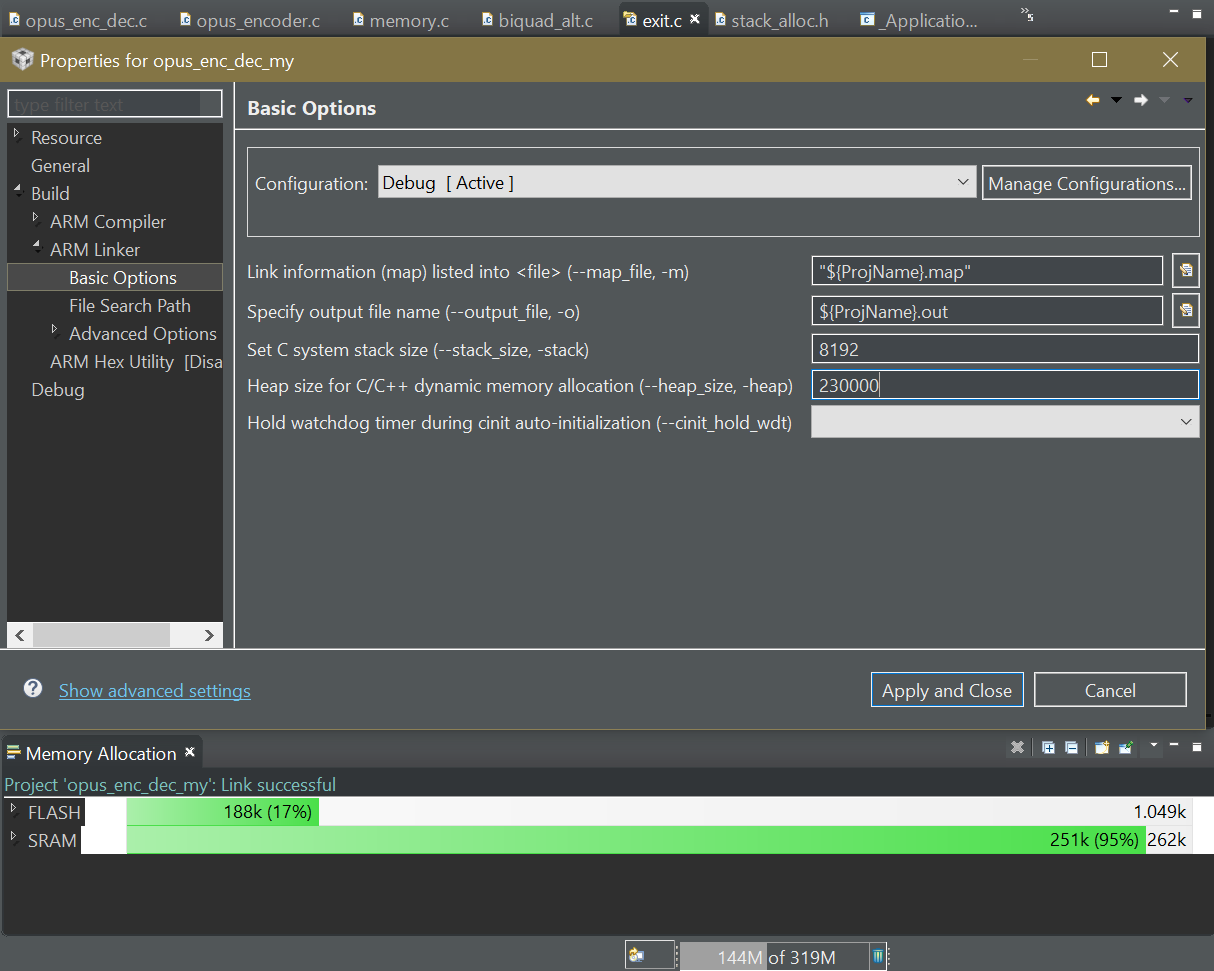Other Parts Discussed in Thread: EK-TM4C1294XL
I'm running spma 076 example from Texas (codec OPUS) on TM4C129XNCZAD, when I'm encoding a wav file the process is aborted after the memory allocation.
Knowing that the encoder codes frame by frame, I noticed that after some frames coded the process is aborted. For that reason I think that the memory allocation is running without problems and the memory De-Allocation is not working properly. I think that because after some frames of encoding the system cannot allocate more memory for encoding the next frames.
Can someone help me solving this problem or identifying the reason of it.
Please see the link with the example that I use: www.ti.com/.../spma076.pdf



